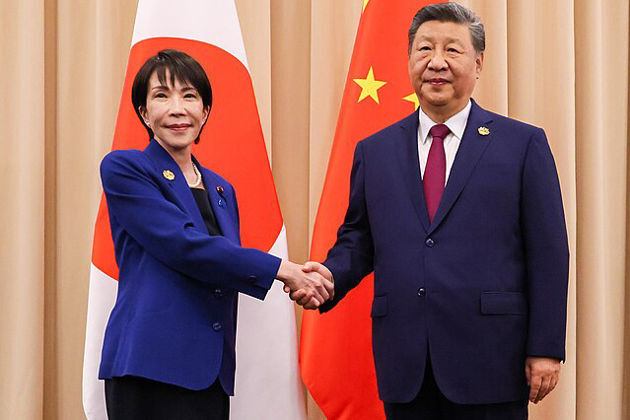Move FM Global News

Asia-Pacific summit ends with joint trade declaration
Nov 3, 2025GYEONGJU, South Korea: Facing growing tensions in global trade, Asia-Pacific leaders ended the APEC summit on November 1 with a joint declaration calling for more resilient trade and fair economic benefits.
This year’s Asia-Pacific Economic Cooperation meeting, hosted by South Korea, took place amid rising geopolitical rivalry and stricter economic policies — from U.S. tariffs to China’s export controls — that have strained world trade systems.
Before the summit began, U.S. President Donald Trump announced several trade deals, including agreements with China and South Korea, but he left the country before the prominent leaders’ discussions started. Still, analysts said Washington’s influence remained visible in the final declaration. Unlike last year’s document, this year’s statement did not reference multilateralism or the World Trade Organization (WTO), a sign of changing global dynamics.
Heo Yoon, a trade expert at Sogang University in Seoul, said the omission showed that member countries recognize how difficult it will be to return to a free-trade system led by the WTO. “We cannot deny anymore that there is a paradigm shift in the global trade order,” Heo said.
With Trump’s early departure, China stepped forward to present itself as a supporter of free and open trade — a role long held by the United States. Chinese President Xi Jinping also announced that China will host APEC in Shenzhen in 2026. However, analysts suggested the leaders were careful not to portray the U.S. as weakening free trade while casting China as its new defender. “Few countries believe there can be a new trade order that excludes the U.S.,” Heo noted.
Xi concludes his three-day visit to South Korea on November 1 with a state dinner and a summit hosted by President Lee Jae Myung. Lee, who took office in June after his predecessor’s removal over a failed martial law attempt, has promised to maintain strong ties with the U.S. while improving relations with Beijing. He said Seoul and Beijing had never fully normalized their relationship and hoped for “substantial improvement,” stressing the need for cooperation that benefits both sides.
Earlier in the week, Lee welcomed Trump for a quick state visit, offering praise and gifts while announcing a trade deal that lowers U.S. tariffs in return for significant South Korean investments. Similar events are planned for Xi, marking the Chinese leader’s first visit to South Korea in 11 years.
South Korea remains a key U.S. military ally and relies on U.S. security guarantees against North Korea, yet its economy is deeply linked to China. Lee’s office said he and Xi will discuss denuclearization of the Korean Peninsula. However, North Korea dismissed the topic in a statement, calling it an impossible “pipe dream.”
At APEC, Xi also proposed creating a World Artificial Intelligence Cooperation Organization. The leaders adopted declarations on demographic change and AI, though they did not include any rules on AI regulation.


